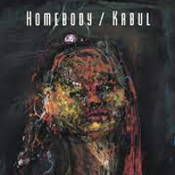
Overview
Synopsis
Tony Kushner’s Homebody/Kabul revolves around a lonely London housewife, the Homebody, and the far-reaching effects of her romanticized fascination with Afghanistan. Her obsession with the country is set off by an old, outdated guidebook which she pores over. Trapped in an unhappy family home, she suddenly decides to leave and disappears into Kabul where she is soon reported as dead. But is she? Leaving the familiar behind them, her husband and daughter set out to search for her body. It is not long before they find themselves ensnared in a foreign culture torn apart by centuries of war and turmoil, and now trapped in a brutal regime. Developed and written before the horror of 9/11, Homebody/Kabul creates a vivid portrait of a dangerous collision between cultures.
Show Information
Context
Plot
Characters
| Name | Part Size | Gender | Vocal Part |
|---|---|---|---|
|
Lead |
Female |
Non-singer |
|
|
Lead |
Male |
Non-singer |
|
|
Lead |
Female |
|
|
|
Supporting |
Male |
Non-singer |
|
|
Supporting |
Male |
Non-singer |
|
|
Supporting |
Male |
Non-singer |
|
|
Supporting |
Female |
Non-singer |
|
|
Featured |
Male |
Non-singer |
|
|
Featured |
Female |
Non-singer |
|
|
Featured |
Male |
Non-singer |
|
|
Featured |
Male |
Non-singer |
|
|
Featured |
Male |
Non-singer |
Songs
A song with an asterisk (*) before the title indicates a dance number; a character listed in a song with an asterisk (*) by the character's name indicates that the character exclusively serves as a dancer in this song, which is sung by other characters.
Monologues
Scenes
Key Terms
A full-body garment worn by some Muslim women, used in theatre to explore themes of identity, gender roles, and religious freedom.
A constructed international auxiliary language sometimes used in experimental theatre to promote unity or critique nationalism.
A male relative whom a Muslim woman cannot marry, referenced in plays examining family structures and cultural practices.
A language spoken in Afghanistan and Pakistan, sometimes referenced in plays addressing war, culture, and identity.
An ethnic group primarily from Afghanistan and Pakistan, often represented in global theatre for their cultural identity and conflict.
A political group sometimes depicted in drama to critique extremism, oppression, and global conflict.
Videos
Sorry! We do not currently have videos for this guide.
Quizzes
Themes, Symbols & Motifs
Sorry! We do not currently have learning modules for this guide.
Quote Analysis
Sorry! We do not currently have learning modules for this guide.
